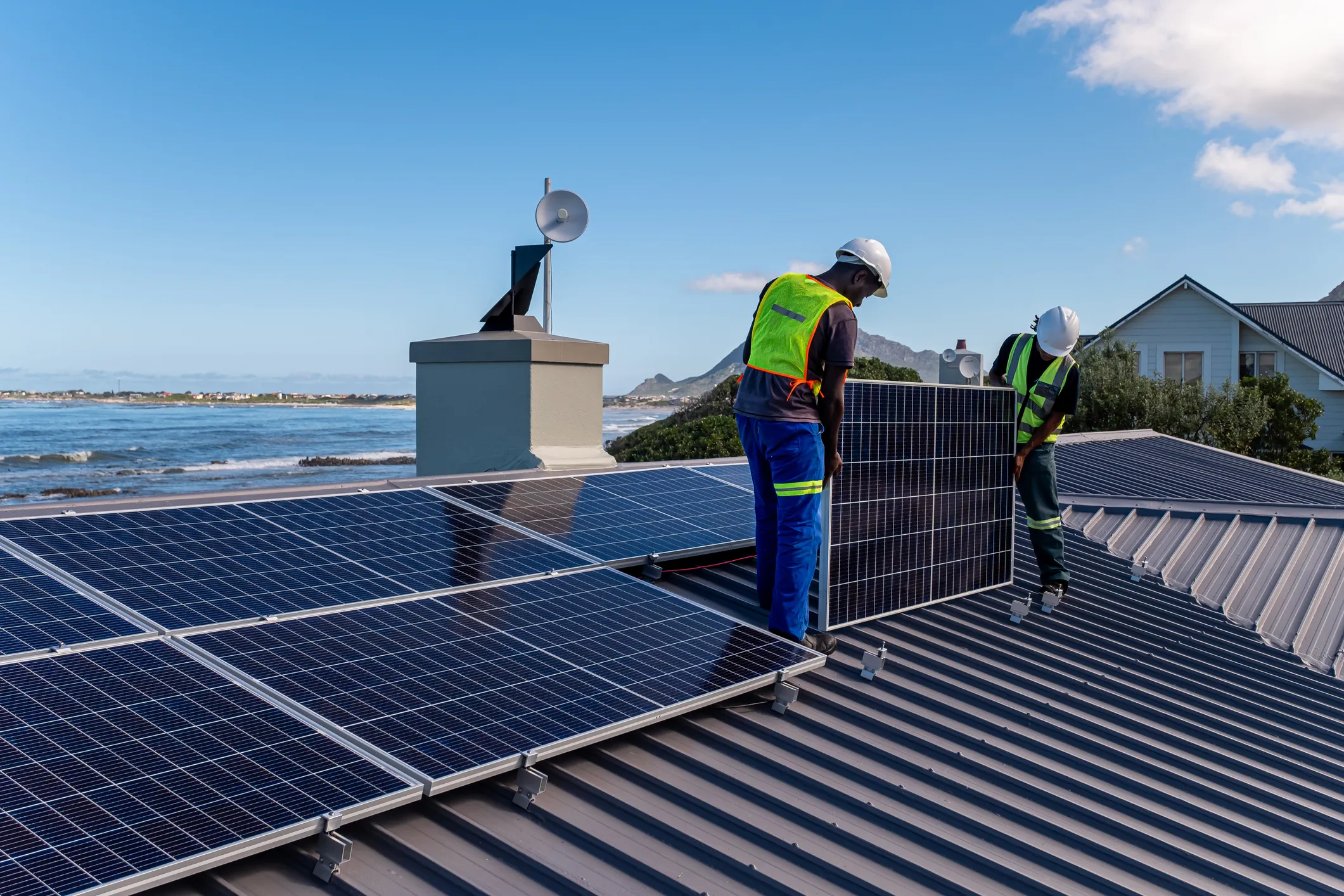With energy bills climbing, homeowners are searching for ways to keep costs under control. One solution is harnessing the power of the sun with solar panels. Start a search today to find solar panel grants and incentives.
Installing solar panels can slash energy bills by up to 70% and save up to £1,600 annually. The initial cost of installing solar panels, however, can give homeowners pause. Fortunately, no-cost solar programmes can make them affordable.
What Are Solar Panels?
Solar panels are devices that convert sunlight into electricity. They do this using a technology known as photovoltaics (PV). When sunlight hits a solar panel, it excites the electrons in the panel’s cells, producing an electrical current. This electricity can then be used to power your home, reducing reliance on traditional energy sources.1
 nattrass/Getty
nattrass/GettyBenefits of Solar Panels
Solar panels offer a range of advantages that have direct impacts on your wallet, property value, and the environment:
- Save money on your energy bills: One of the primary benefits of solar panels is the potential for substantial energy bill savings. After all, they allow you to generate your own electricity.
- Reduce your carbon footprint: A solar-powered home contributes significantly to a sustainable future. It reduces our reliance on fossil fuels and limits greenhouse gas emissions.
- Increase your property value: Homes with solar energy systems often command higher prices in the real estate market. As a result, the upfront investment can pay off when you sell your home.
- Gain energy independence: With solar power, you’re no longer dependent on energy suppliers and their fluctuating prices. Your energy source is reliable, renewable, and right above you.2
Looking Closer at the Savings
The average cost of a solar panel system ranges from £6,000 to £8,000 in the UK. That may sound like a pricey upfront investment. However, this cost can be significantly discounted through various programmes. And remember, solar panels are an investment that pays back.
Solar panels can reduce energy bills by up to 70% and save households up to £1,600 per year.3 This means that, over time, solar panels can pay for themselves through these savings. And then there are the property value benefits. Solar panels can boost home values by up to 14%.4
Exploring No-Cost Solar Programmes
Several solar panel grants and incentives are available in the UK. For instance, here are some of the programmes to have on your radar as you search online:
- ECO4 Programme: This programme offers financial support to eligible households installing energy-efficient upgrades like solar panels. It provides grants up to £14,000.
- Home Upgrade Grant: Similar to the ECO4, this grant provides financial assistance for energy-efficient home upgrades. Eligible households can get up to £10,000.
- VAT Discount: Homeowners installing solar panels can benefit from 0% VAT on energy-efficient materials, significantly lowering costs.
- Smart Export Guarantee (SEG): Energy suppliers under this programme pay homeowners for the excess electricity produced by their solar panels.
- Regional Grants: Various councils provide regional grants that offer financial support for solar panel installations. So, it’s worth checking the available grants in your locality.5
Solar Panel Loans Can Also Help
If grants aren’t enough, you can consider solar loans. The Green Deal loan scheme, for instance, allows you to borrow money for energy-efficient improvements, including solar panels, and repay the loan through your energy bill savings.6
Additionally, many banks offer home improvement loans that can be used for solar panels. Of course, loan terms can vary greatly, so it’s important to shop around online. By comparing different loans, you can find the best deal available.
Frequently Asked Questions
When considering solar panels, homeowners often have a number of questions. Here are some commonly asked questions you might be curious about:
How long do solar panels last?
Solar panels are typically designed to last 25 to 30 years. However, this doesn’t mean they stop producing electricity after this period. It just means their energy production declines.7
Do solar panels work in cloudy weather?
Yes, solar panels can still generate electricity in cloudy or overcast conditions. While their output may be reduced, they do not stop working altogether.8
Do solar panels require a lot of maintenance?
Solar panels require very little maintenance. It’s generally recommended to have them inspected and cleaned periodically to ensure optimal performance.9
The Bottom Line
Solar panels are a smart investment for several reasons. For example, they can offer significant cost savings and environmental benefits in the long run. Plus, the initial cost can be more manageable than you might think. Take some time to explore no-cost solar programmes. Between grants and other incentives, there are many ways to make this upgrade more affordable.